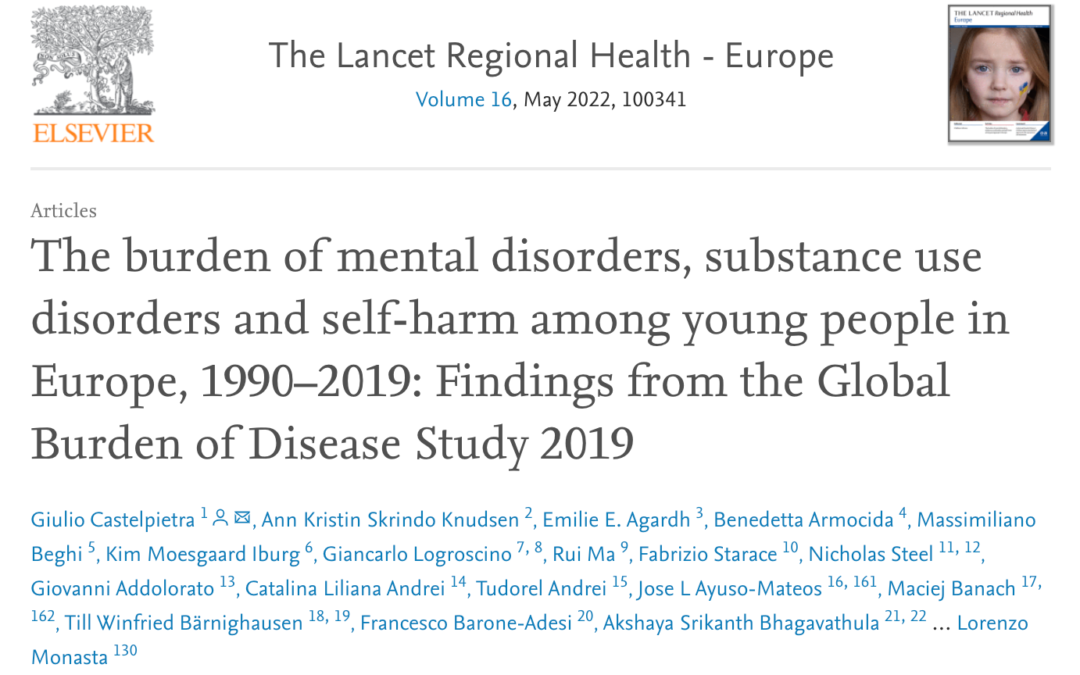Young people’s mental health is a major public health concern in European youth, with major differences in resource allocation across EU and Schengen countries.
Estimates derived from the Global Burden of Disease (GBD) Study 2019 provided information on the status of mental health (mental disorders, substance use disorders, and self-harm) in people aged 10-24 years in 31 European countries and changes in prevalence, incidence, Years Lived with Disability (YLDs), and Years of Life Lost (YLLs) from 1990 to 2019 in this population. In addition, the estimates were correlated with the sociodemographic index of the various countries.
In 2019, it was estimated that 13.6 million young people suffered from mental health problems, with a rate per 100,000 population of 16,983 (uncertainty interval: 12,823 – 21,630) for mental disorders, 3,891 (3,020 – 4,905) for substance use, and 89.1 (63.8 – 123.1) for self-harm. In terms of disability, mental disorders ranked first in all countries considered for this age group, with anxiety and depressive disorders having the highest impact, contributing 647.3 (432-912.3) and 569.7 (374.9-816.4) YLDs per 100,000 population, respectively.
In contrast, self-harm ranked between the first and third leading causes of premature death, with a rate of 319.6 (248.9-412.8) YLLs per 100,000 population in 2019.
Over the 30 years of the study, the largest increase in disability was in nutrition and eating disorders (16.9%; 8.9-26.3), while the most significant reduction occurred in intellectual disabilities (-29.1%; 23.8-38.5). Premature deaths due to self-injury also decreased (-27.9%; 38.3-18.7). In each case, significant differences in both prevalence and impact of the different disorders were noted with regard to gender, age groups (10-14; 15-19 and 20-24 years), and different countries. For example, in 2019, Central and Eastern European countries had lower rates of mental disorders, while Southern European countries had lower rates of self-harm. Moreover, in general, the impact of substance use disorders and self-harm was higher in countries with lower sociodemographic index, while there was a significant correlation between mental and substance use disorders.
In conclusion, mental health problems have a decisive impact on the health of young people in Europe, especially in terms of disability, but also premature death. Evidence from the study points to the need for improved policies in the area of mental health, especially in young people, given that these conditions can often persist or exacerbate into adulthood, and given both direct and indirect costs that are higher than other chronic conditions. The reported estimates can also serve as a benchmark for determining the possible further impact of mental health problems on public health in the post-pandemic phase from COVID-19.
Castelpietra G, Knudsen AKS, Agardh EE, et al. The burden of mental disorders, substance use disorders and self-harm among young people in Europe, 1990-2019: Findings from the Global Burden of Disease Study 2019. Lancet Reg Health Eur. 2022;16:100341. Published 2022 Apr 1. doi:10.1016/j.lanepe.2022.100341

